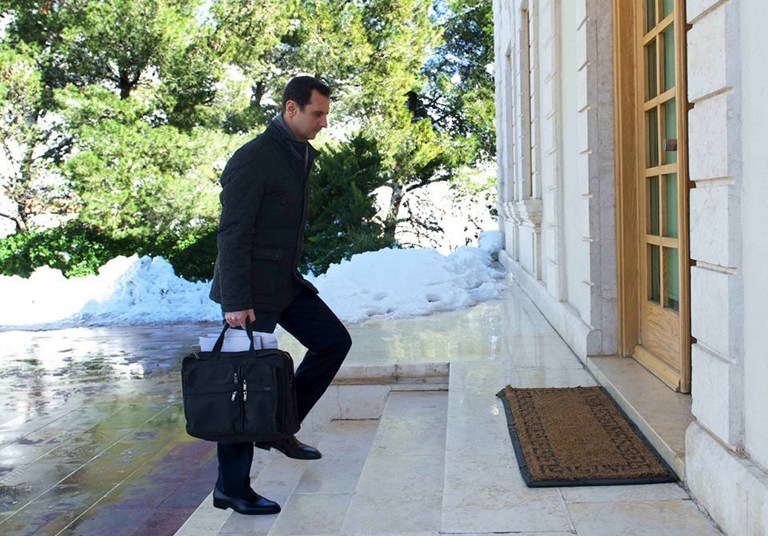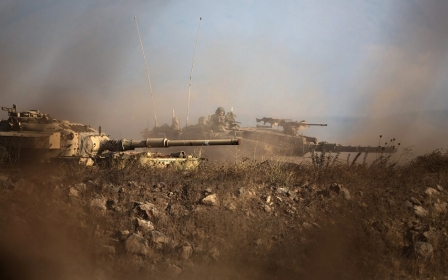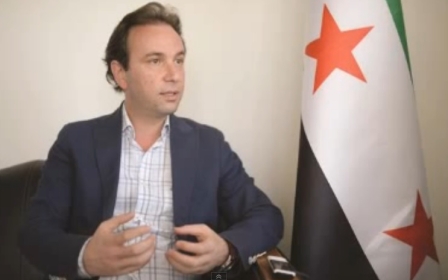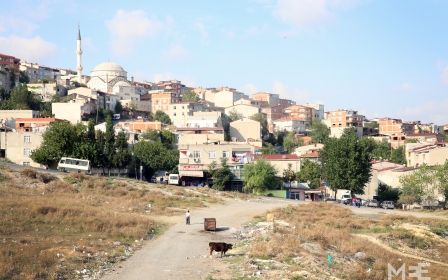Failure awaits Syrians in Russia

Talks on Syria, involving the government and some members of the Syrian opposition, scheduled for the end of this month in Moscow are highly unlikely to take place, and if they do, they will be an unequivocal failure. It seems that only Russia's government thinks otherwise. The bar could hardly be lower.
"We are going to Russia not to start a dialogue, but to meet with these [opposition] figures and to discuss with them the framework of a dialogue," said President Bashar Assad, AFP reported, citing an interview with Czech newspaper Literani Noviny. Groundbreaking stuff.
One of the fundamental problems is who, if anybody, regime officials will meet from the opposition. The main exiled groups - such as the National Coalition for Syrian Revolutionary and Opposition Forces, and the Syrian National Coalition - have declined to attend the proposed meeting, an initiative by Assad-backer Moscow.
Armed rebel forces have not even been invited. This on its own highlights the pointlessness of the talks, given that even if they produced an agreement, implementation would be impossible without cooperation from those influencing events on the ground. The situation in this regard has become more complex than ever, with the further fragmentation of the armed opposition and the rapid expansion of the Islamic State.
Russian Foreign Minister Sergei Lavrov on 14 January said opposition representatives risk losing influence if they do not attend the talks. However, his government has excluded those with the greatest influence - not that they would accept invitations anyway.
Even most of the internal, small opposition groups tolerated by the Assad regime - in effect, opposition in name only - have reportedly either declined or are still undecided. This is indicative of the talks' prospects.
Perhaps Russia's aim was not to initiate a dialogue - or "the framework of a dialogue" - but to further divide an already fractured opposition. After all, invitations were sent to individuals, not groups. This aroused opposition suspicions and was a contributing factor to their refusal to attend.
Despite public statements predicting the success of the talks, perhaps Moscow privately knows that they are doomed or highly unlikely to happen at all. That may be the point: to make itself and the Assad regime seem willing to seek a solution, while trying to make opponents look obstinate and unreasonable. The whole thing could basically be a public-relations exercise, albeit a hollow one.
The fundamental reason for the futility of the talks is that they would experience the same lack of any common ground that spelled the downfall of the two prior Geneva conferences. A precondition of opposition groups - in relation to the Moscow talks and those in Geneva - has been a halt to regime bombardments. The Assad government has flatly refused to consider this.
More fundamentally, the opposition says talks must lead to a transition of power that involves Assad stepping down. His regime says his position is not up for negotiation, and Moscow says his removal should not be a precondition. The regime's position will have only hardened in this regard in light of Assad's sham re-election last year and battlefield successes thanks to foreign fighters and weaponry, much of it Russian.
The US-led coalition campaign against the Islamic State has emboldened Assad further by enabling him to intensify attacks against other rebel forces. This has led to opposition groups - including those allied with Washington - to complain that the campaign is benefiting Assad. Even American officials have acknowledged that this is the case. Meanwhile, modest US-led training and supplies for Syrian rebels are intended for combating the IS, not the regime, and will not be in place until spring.
Furthermore, it is difficult to see which, if any, credible opposition figures would be acceptable to the regime in any future government given that it considers all of them "terrorists" or "puppets", or unrepresentative of the Syrian people (unlike a brutal dictatorship propped up by foreign allies).
Two days prior to the second Geneva conference last January, Assad described the possibility of naming opposition members abroad to a future government as "totally unrealistic" and a "good joke".
In any case, as with the Geneva conferences, a transition of power - indeed any genuine solution to the crisis - will not be up for discussion. Assad says, as he has done before, that the talks should focus on "the fight against terrorist organizations, support for the army and the war on terror" - and, of course, not his regime's terrorism. This is echoed by Russian statements on the limited focus of the Moscow talks.
What else is to be expected from one of Assad's primary allies? No wonder, then, that opposition groups are not wasting their time on this ill-conceived, one-sided initiative - if one can call it an initiative. This month will pass with the continuation of a horrific war that the Moscow talks never seriously intended to resolve.
- Sharif Nashashibi is an award-winning journalist and analyst on Arab affairs. He is a regular contributor to Al Arabiya News, Al Jazeera English, The National, and The Middle East magazine. In 2008, he received an award from the International Media Council "for both facilitating and producing consistently balanced reporting" on the Middle East.
The views expressed in this article belong to the author and do not necessarily reflect the editorial policy of Middle East Eye.
Photo: Syrian President Bashar al-Assad enters his office in Damascus on 8 January (AFP)
Middle East Eye propose une couverture et une analyse indépendantes et incomparables du Moyen-Orient, de l’Afrique du Nord et d’autres régions du monde. Pour en savoir plus sur la reprise de ce contenu et les frais qui s’appliquent, veuillez remplir ce formulaire [en anglais]. Pour en savoir plus sur MEE, cliquez ici [en anglais].





